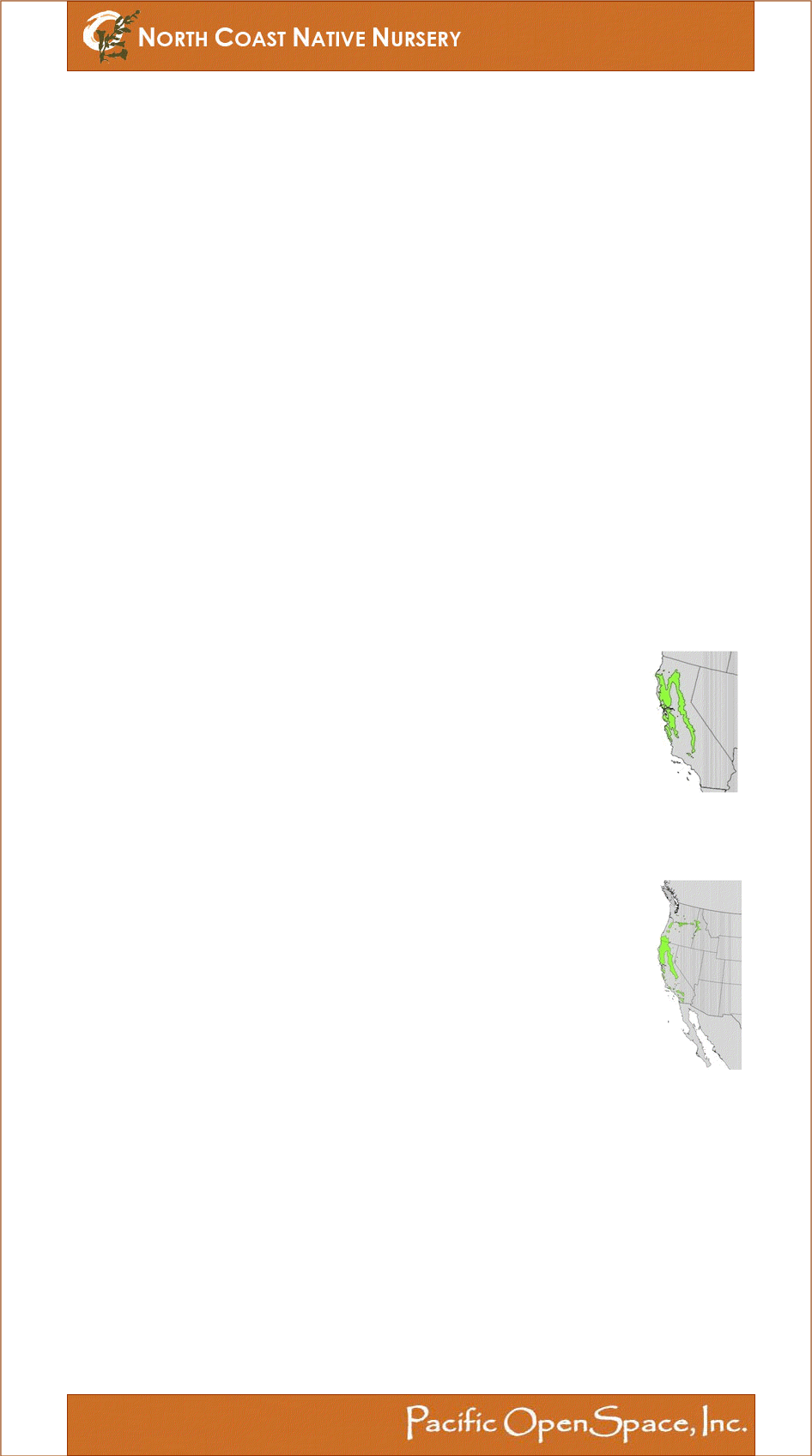 |
||
Range of Alnus rhombifolia
from "Atlas of United States Trees"
- Elbert L. Little, Jr.
White Alder
Description |
|||
Description: |
White alders are trees that grow in riparian zones. They usually grow in the floodplain of a creek on stabilized sand bars or on the lower banks. They grow between 30 and 100 ft high. |
||
Branching: |
Alternate branching. |
||
Leaves: |
The deciduous leaves are oblong-ovate, with serrated margins. They are distinguished from Alnus rubra by their leaf margins, which do not curl under, and by their veins, which are not deeply indented into the leaf. |
||
Flowers: |
The flowers are in catkins, which emerge and open in mid-winter |
||
Fruit: |
The seeds are borne in small cones, similar to pine cones, but much smaller. The cones are found at the tips of the branches. The seed ripens in mid to late fall. |
||
Plant Relationships |
|||
Related California Species: |
Alnus rubra |
Red alder |
|
Related Exotic Species: |
Alnus rugosa |
Speckled alder (E US) |
|
Growing Conditions |
|||
Natural Range and Habitat: |
Alnus rhombifolia is found in riparian zones in northern California in the Coast Range, Sierras and Cascades. It can also be found in the mountains of southern California. |
||
Sun and Exposure: |
White alder is somewhat shade tolerant when young. It grows best in full sun. |
||
Soil and Moisture Requirements: |
Alders are found in the flood zones of creeks. They may also be found in wet and boggy sites. They will grow in a variety of soils, but tend to be found on sandier sites. |
||
Horticulture and Restoration |
|||
Wildlife Habitat: |
|||
Restoration: |
Alders are often used in riparian restoration projects. They would be most appropriately placed in the flood zone, but few restoration professionals would do that, because they are correctly concerned that the trees will be swept away in the current before they have a chance to root. |
||
Uses in Landscaping: |
These are very attractive trees, with straight limbs that have a stiff, yet elegant appearance. When placed in the right location, they grow vigorously. Their main limit to landscaping and restoration is their requirement for moist sites. |
||
Horticultural Comments: |
Sunset zones 1-9, 14-21 |
||
Alnus rhombifolia
California Native Plant Species
California Native
Plant Guide
Range of Alnus rhombifolia in California
from "Atlas of United States Trees"
- Elbert L. Little, Jr.
Cronquist System |
|
Order: |
Fagales |
Family: |
|
Genus: |
|
APG System |
|
Order: |
Fagales |
Family: |
Betulaceae |
Genus: |
Alnus |
Back to start page
